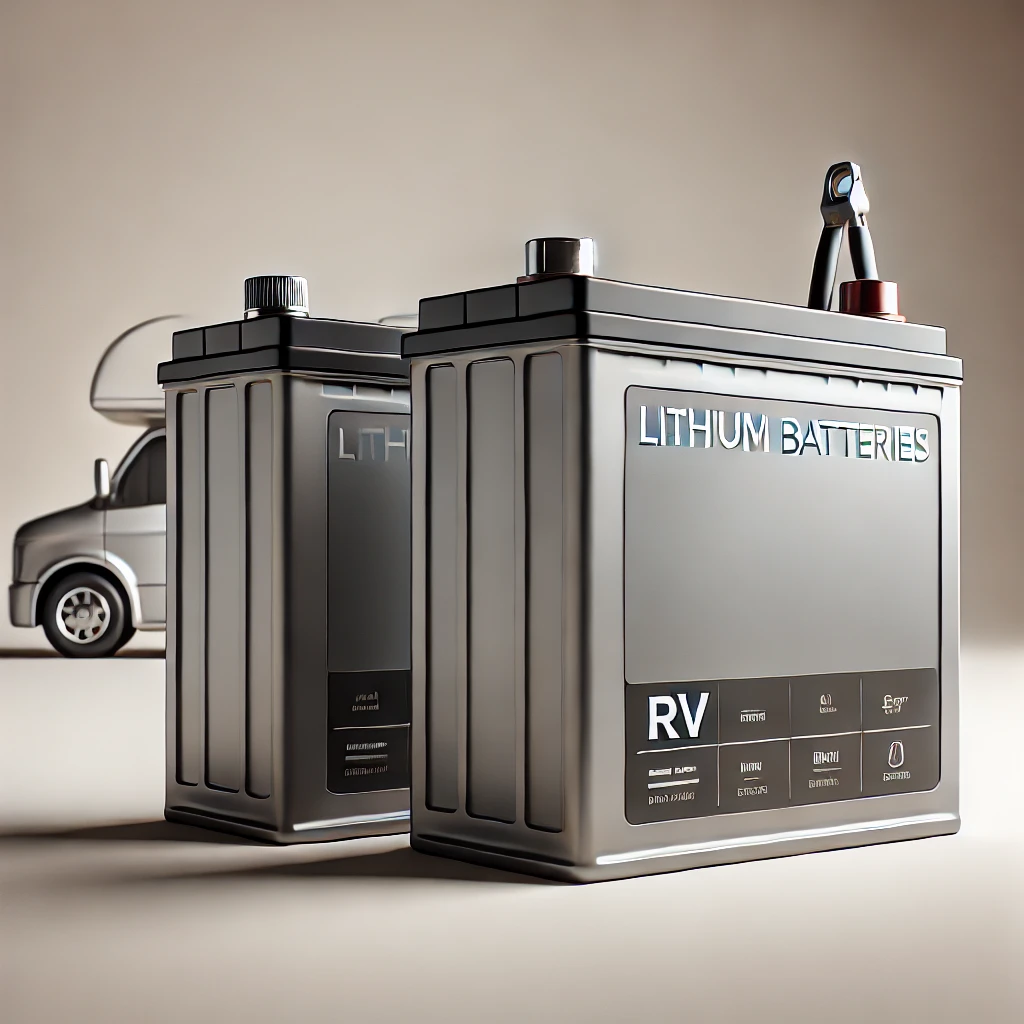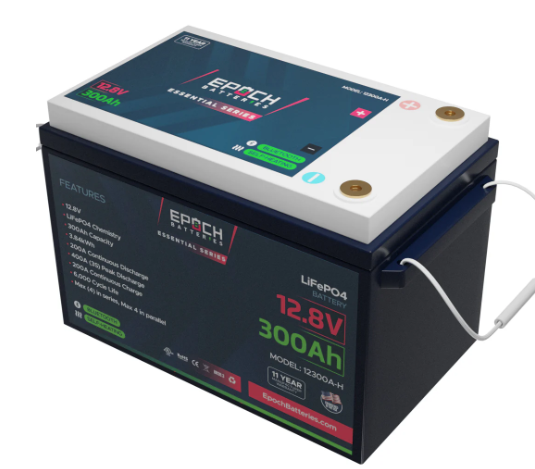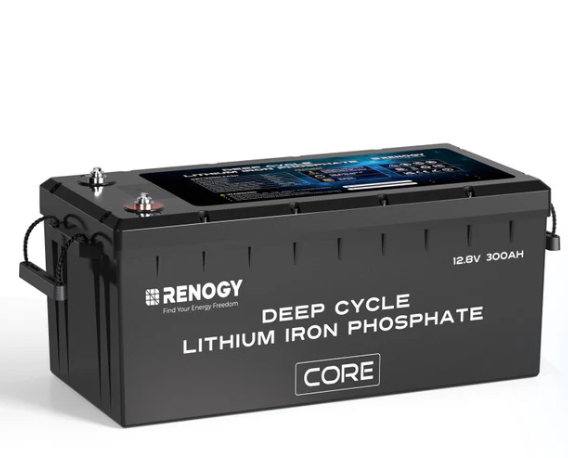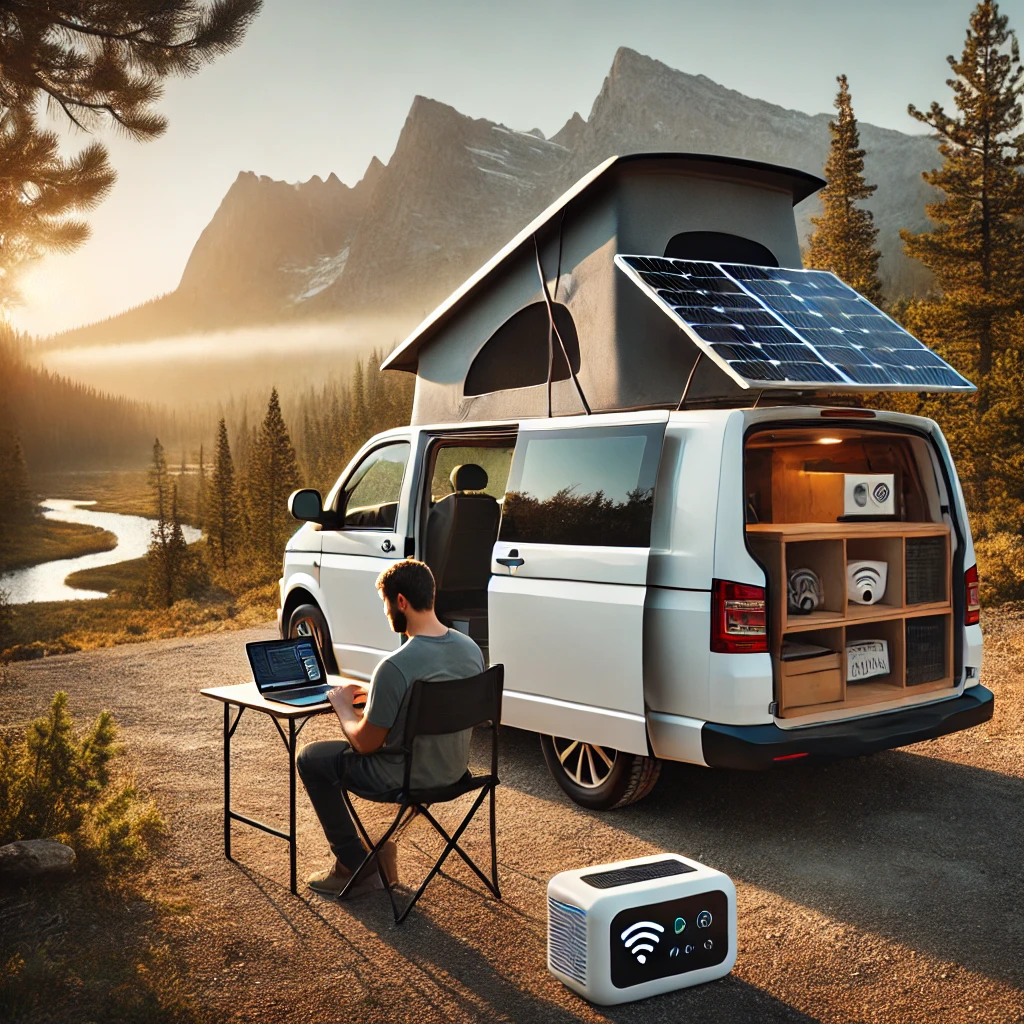Choosing the Best 300Ah Battery: Renogy vs. Epoch

When it comes to powering off-grid adventures, RVs, or even cabin getaways, choosing the right battery can make or break your experience. Two of the best options on the market are the Renogy 300Ah Core Series and the Epoch 300Ah LiFePO4 batteries. Both offer powerful lithium iron phosphate (LiFePO4) technology, but how do they compare? In this blog post, I’ll break down the key features of each battery, share my personal experience, and help you make the best choice for your setup.
Epoch 300Ah LiFePO4 Battery: Versatile and Feature-Packed
The Epoch 300Ah LiFePO4 battery stands out with its built-in heating element and Bluetooth connectivity, which makes monitoring battery health incredibly easy. You can check the battery’s charge level, temperature, and overall health through an app, eliminating the need for an additional shunt battery monitor. This is a huge plus for anyone looking to simplify their setup.
Key Features:
- Bluetooth Monitoring: Monitor battery health through an app on your smartphone, removing the need for expensive external monitors.
- Cold Weather Performance: With its built-in heating element, the Epoch battery can be charged in sub-zero temperatures. This makes it perfect for colder environments.
- Long Cycle Life: The battery is rated for over 4000 cycles, ensuring it will last a long time, even with daily use.
- 11-Year Warranty: With a decade-plus warranty, you can have peace of mind about long-term reliability.
Renogy 300Ah Core Series LiFePO4 Battery: Power and Reliability
Renogy’s 300Ah Core Series battery is similarly impressive. Like the Epoch, it has a self-heating feature for cold weather, but it takes this up a notch with a 200W heating element, making it heat up faster. While it lacks Bluetooth connectivity, its robust design and strong performance in tough conditions make it ideal for those who need durable, long-lasting power.
Key Features:
- Cold Weather Performance: With a 200W heating element, this battery heats up twice as fast as other models, including Epoch.
- Long Cycle Life: The Renogy battery boasts up to 5000 cycles, which can outlast many competitors.
- 5-Year Warranty: While shorter than Epoch’s, Renogy’s warranty still offers reliable coverage.
- Rugged Design: Its sturdy construction ensures it can withstand bumps, making it great for off-road and marine use.
Side-by-Side Comparison Chart
| Feature | Epoch 300Ah | Renogy 300Ah |
|---|---|---|
| Price | $999 | $999 |
| Battery Type | LiFePO4 | LiFePO4 |
| Cycle Life | 4000+ cycles | 5000 cycles |
| Bluetooth Monitoring | Yes (via app) | No |
| Self-Heating | Yes (heats in sub-zero temperatures) | Yes (200W, heats 2x faster) |
| Cold Temperature Range | Charges in -4°F (-20°C) | Charges in -4°F (-20°C) |
| Weight | 58 lbs | 69 lbs |
| Dimensions | 12.2″L x 7.5″W x 8.7″H | 20.55″L x 9.45″W x 8.62″H |
| BMS (Battery Management System) | Smart BMS with overcharge and short-circuit protection | Yes, with low-temp cutoff and rugged design |
| Warranty | 11 years | 5 years |
Which One Should You Buy?
If Bluetooth monitoring is a must-have for your setup, then the Epoch 300Ah battery is the clear winner. Being able to monitor your battery status in real time through an app makes managing your system easier and more efficient. Plus, the 11-year warranty is hard to beat.
On the other hand, if you need the fastest cold-weather performance or plan on taking your system into harsh, bumpy environments, the Renogy 300Ah battery might be a better choice. With its more powerful self-heating system and rugged construction, it’s built for tough conditions.
Both options are priced the same at $999, so it really comes down to what features are most important for your specific needs.
Conclusion
Both the Renogy and Epoch 300Ah LiFePO4 batteries are excellent choices for anyone looking to power an off-grid system, whether it’s for a van, RV, cabin, or boat. The choice ultimately depends on whether you prioritize Bluetooth monitoring and a longer warranty (Epoch) or faster cold-weather performance and a more rugged design (Renogy).
Whichever you choose, you’ll be getting a powerful, long-lasting battery that will keep your system running smoothly for years to come.
As an Amazon Associate I earn from qualifying purchases.




